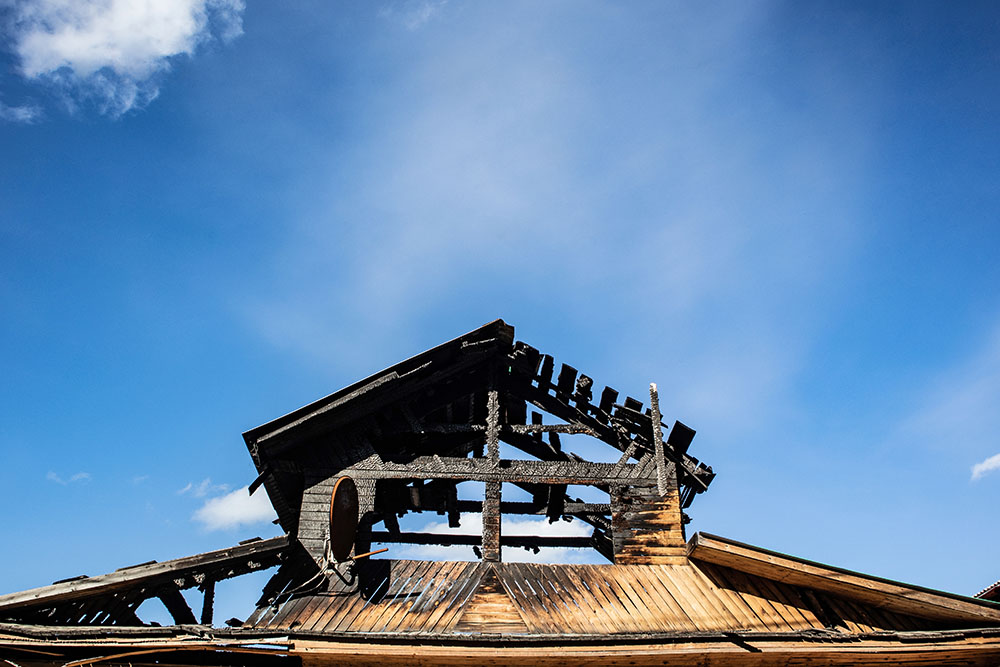Will My Insurance Cover Fire Damage Restoration?

CONTENTS
- Understanding fire restoration insurance coverage
- The anatomy of a fire insurance policy
- Factors influencing fire damage restoration coverage
- Navigating limitations and clauses in fire insurance
- Local council support and fire restoration claims
- The role of professional fire restoration companies in claims
- Frequently asked questions
- Get in touch
In the unfortunate event of a fire, fire restoration insurance becomes a critical resource that one hopes they never have to use. Understanding the entire scope of coverage provided by such insurance could be intimidating as it requires wading through complex legal jargon and details.
Our fire damage clean-up services include restoring your property and cleaning dangerous materials like soot and ash. We ensure that your property is safe to live in again upon completion, leaving room for renovation or future sales.
Read on to learn how local councils contribute during these challenging times and emphasise the critical role that professional restoration companies play in obtaining insurance coverage for claims.
Understanding fire restoration insurance coverage
Fire restoration insurance typically includes costs associated with repairing or replacing damaged structures and personal belongings. This encompasses both primary and secondary damages resulting from the fire.
Primary damage refers directly to areas burnt by the flames, while secondary damage relates to issues like smoke and water damage caused during firefighting efforts.
Beyond physical repairs, some policies may also cover expenses in finding temporary housing. These are costs incurred if you need accommodation while your home undergoes restoration.
Limitations and conditions in policies
While most standard home insurance policies include coverage for fire damage, there can be exceptions based on specific circumstances or causes of fires. For instance, deliberate acts of arson would not be covered under an insurance policy.
Policies often limit on pay-outs for certain items or types of property. High-value items like jewellery might require additional coverage beyond basic home contents insurance.
Navigating through the claims process
Filing a claim after a fire can seem overwhelming, but understanding how it works can make it more manageable. First, notify your insurer about the incident; this initiates the claims process, where an adjuster assesses damages before reimbursement occurs.
If you disagree with the adjuster's evaluation, consider seeking an independent appraisal or legal advice. It is vital to read and understand your insurance policy thoroughly. This is so you know what is covered, potential limitations, and how to navigate the claims process when a fire occurs.
The anatomy of a fire insurance policy
Understanding the details of your fire insurance policy is crucial for homeowners, landlords, and tenants alike. It provides insights into what extent financial coverage you can expect in case of fire damage restoration.
The key components to look out for include the declaration page, coverage limits, deductibles, and exclusions:
- The declaration page: An overview or snapshot of your insurance coverages. This covers who is insured, the property details, extent of coverage, premium costs, and effective dates.
- Coverage limits: Representing the maximum amount an insurer will pay towards a covered loss. For example, a fee of £200k is required, but your limit is £150k - meaning you will have to pay the £50k yourself.
- Deductibles: This is how much you must pay yourself before insurance commences after a claim. This differs depending on policies and potential pay-outs from insurers.
- Exclusions: A situation where benefits are not provided under normal circumstances - these are in your unique policy documents. Read through these with your provider or a solicitor.
Being aware of these components can help you understand your financial responsibilities in the event of a fire and make informed decisions when purchasing or renewing an insurance policy. Consult with an insurance professional for advice tailored to your specific circumstances.
Factors influencing fire damage restoration coverage
In the aftermath of a fire, restoration costs can be substantial. Insurance policies may provide financial assistance to cover these expenses, but the extent of coverage can vary based on several factors:
- The cause of the fire: arson, accidental, natural disaster, neighbouring property.
- The property's location: high-risk areas or higher crime rates
- Safety compliance: Fire detectors, maintenance checks, gas inspections, etc.
- Policy type: Buildings insurance, home insurance, contents insurance, etc.
In summary, understanding these factors can help you evaluate your current level of protection against fire damage and make informed decisions about necessary adjustments to your policy for optimal coverage.
Navigating limitations and clauses in fire insurance
When protecting your property from fire damage, it is integral to have an insurance policy in place. Fire insurance policies can provide financial assistance for fire damage restoration, which can be incredibly valuable in the aftermath of a disaster.
However, it is important to be aware of the limitations of these policies. One limitation of fire insurance policies is the wear and tear provision.
This provision states that the insurer will not cover any damage caused by wear and tear, which can be a significant limitation if your property is older or has not been well-maintained.
Another limitation is the gradual damage provision, which states that the insurer will not cover damage that occurs over time, such as water damage from a slow leak.
To address these limitations, some insurers offer additional protection options. It is integral to carefully consider these options and weigh the cost against the potential benefits.
You must also understand the deductibles. The deductible is the money you will be responsible for paying before your insurance coverage kicks in. Higher deductibles can lower your premiums, but they can also mean that you will have to pay more in the event of a fire.
Overall, you should carefully review your fire insurance policy and understand all the provisions, limitations, and deductibles. If you are unsure what your policy covers or you need additional protection, consult a professional for personalised advice.
Local council support and fire restoration claims
In the unfortunate event of a fire, homeowners, landlords, and tenants often rely on their insurance policies to cover the costs associated with damage restoration. However, it is integral to understand that local councils in the UK also provide support during these challenging times.
Local councils must ensure public safety following a fire incident. This includes providing ongoing assistance, such as counselling services, temporary housing, or financial aid for individuals struggling after a fire.
Understanding your Insurance policy provisions
Policies differ significantly among insurers, so understanding specific provisions relating to fire damage restoration is crucial.
Some policies offer comprehensive coverage, including clean-up costs and complete building repair or replacement, while others only cover basic rebuilding costs, excluding any upgrades made since purchasing the policy.
Certain conditions outlined in insurance contracts can impact coverage eligibility, like maintenance requirements or prompt reporting of incidents. The Money Helper's guide on building insurance provides further insights into what typical home insurance policies cover.
The role of professional fire restoration companies in claims
Professional fire restoration companies, such as ICE Cleaning, are critical in insurance claims for fire damage. Our expertise and understanding of the process ensure that all works conducted are within the scope of your insurance policy. We will carry out the following:
- An assessment and documentation of damage due to soot, smoke, heat, water, and mould
- Communicating with insurance providers to ensure a fair evaluation and discussing the necessary remediation processes
- Cleaning and decontaminating the property within the insurer's expectations and allowance
- Adhering to UK cleaning regulations, ensuring work is conducted with health and safety in mind and protecting the homeowner from potential liabilities
Professional fire restoration companies like ICE Cleaning act as your advocate during the claims process, ensuring that you receive fair coverage for all necessary restoration work following a fire incident.
Frequently asked questions
What is the meaning of fire restoration?
Fire restoration means repairing and cleaning up property after a fire to make it safe and liveable again.
What are the disadvantages of fire insurance?
Policies can have high premiums, strict terms, and coverage limits that may not cover all your losses.
What is included in the fire insurance policy?
A typical policy covers damage repair costs from fires, including structures, personal belongings, and sometimes living expenses during repairs.
Is fire covered by insurance?
Most home insurance policies include coverage for damages caused by fires as part of their standard protection package.
Get in touch
At ICE Cleaning, our fire damage cleaning services cover the complete cleaning, decontamination, and restoration of your property. We work with commercial, industrial, and domestic clients after a fire, offering emergency cleaning services the same day as your call.
To learn more about our fire restoration services, get in touch today at 0208 066 0360 or enquiries@icecleaning.co.uk. We have teams stationed nationwide so that you can be supported in an emergency 24/7, 365 days a year.

Speak with me today,
I’m here to help
By asking you a few questions either via phone or email I can immediately provide a realistic estimation of the cost.
You’re in good company. We’ve cleaned for the following commercial clients… View all

Why choose us?
- Cater to a wide variety of cleaning situations
- Nationwide coverage, available 24/7
- Cater to commercial and domestic clients
- Free survey provided prior to quotation
- Emergency response team
- Offer a bespoke service designed to suit all your needs
- All technicians hold professional health and safety qualifications, including BICSc, IOSH, Dewpoint Professional & Safe Contractor
We’re fully accredited
We place best practise, professional expertise and health and safety at the core of our business. We’re fully compliant with all legal obligations. You can view a list of our accreditations below, or visit our Health & Safety page for more information.











-RGB-small.1707319151.jpg)




















